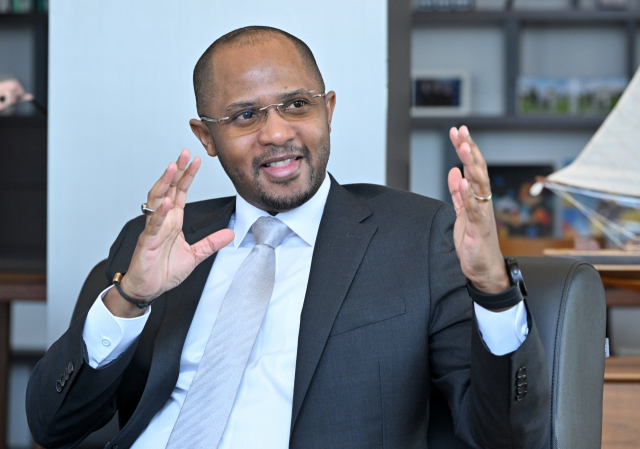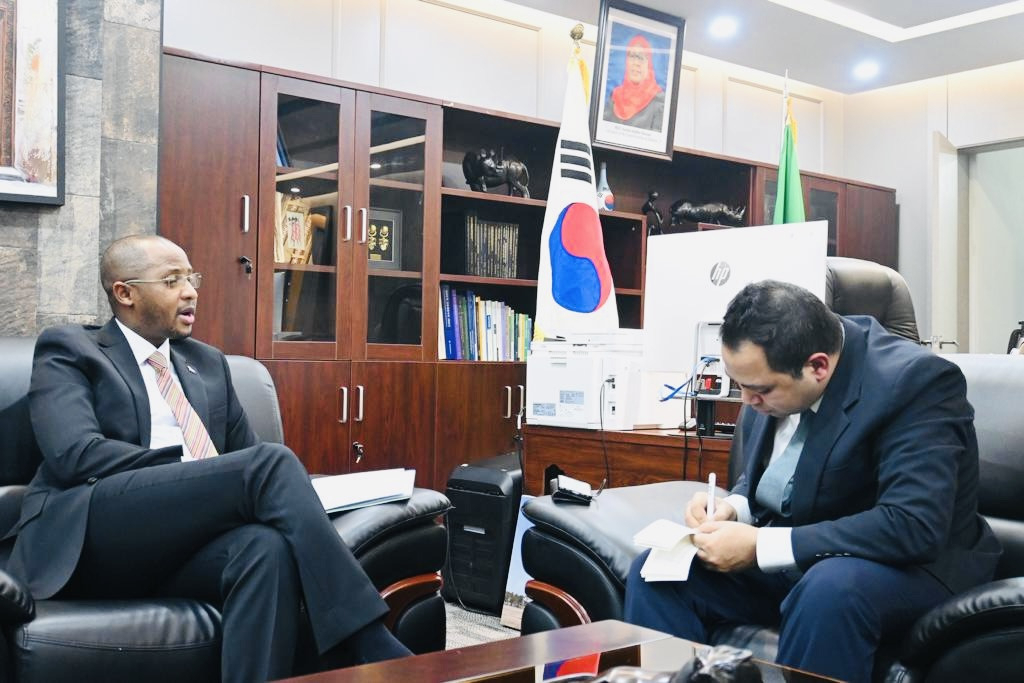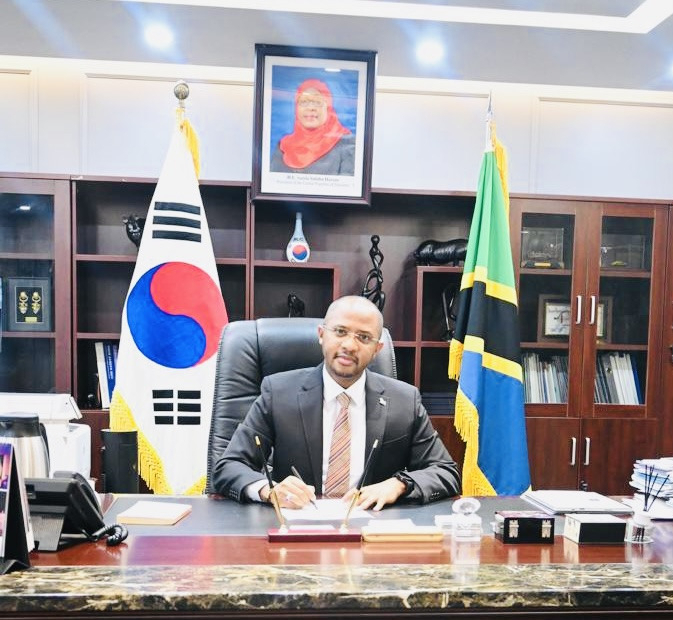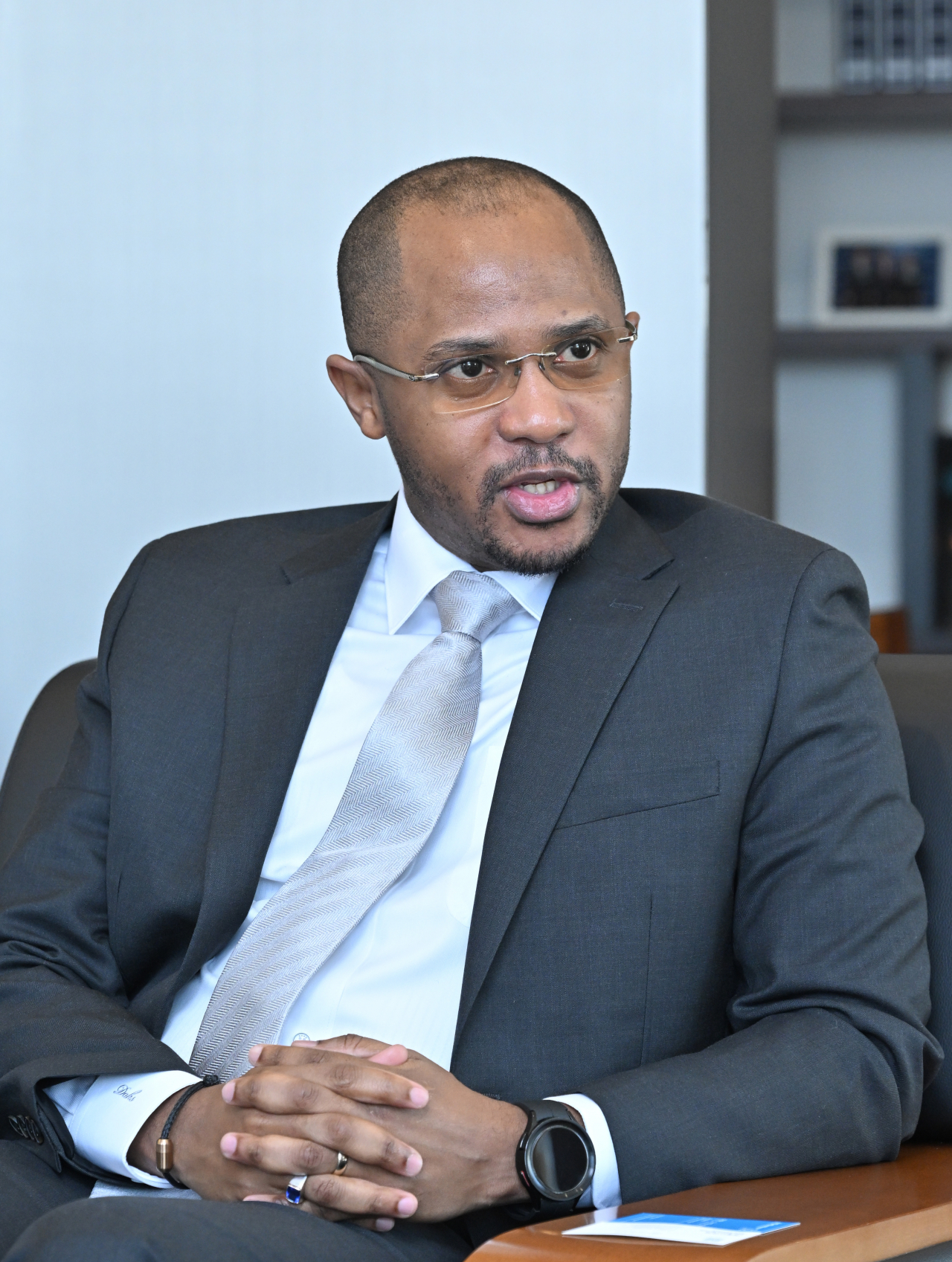[Bridge to Africa] Seoul Summit to set momentum for Korea-Africa ties: Tanzania amb.
Growing popularity of K-contents in Africa crucial to boost trade, but prejudices on Africa remains as hurdle
By Sanjay KumarPublished : Jan. 29, 2024 - 15:47

The geographical distance between South Korea and Africa has historically hindered exchanges, fostering numerous misconceptions about the vast continent consisting of 54 nations and their respective rich cultures and assets, according to the Tanzanian ambassador in Seoul.
But he expects an upcoming summit in Seoul in June that brings African leaders to the capital city, is expected to break these barriers and initiate a new era of robust cooperation between South Korea and Africa.
"There is a cultural distance; they often say, 'Africa is too far.' But the distance from here to the United States (and from here to Africa) is more or less the same," Tanzanian Ambassador Togolani Edriss Mavura in a recent interview with The Korea Herald.
"Right now, trade between African countries and Korea is very minimal compared to the size of the whole continent," he said.
According to Mavura, Korea is the fifth-largest exporter and eighth-largest importer globally, but Africa's share of Korea's trade remains at only 1 percent.
Although South Korea became the world's 10th-largest economy without robust economic ties with African nations, the country has the potential to enter the top five and beyond should it embrace trade with Africa, he says.

“Our cashew nuts are getting here, and our coffee is getting here, but not directly. It's not that Africa isn’t ready to do business with Korea, but there's a lot of regulation that needs to go down,” Mavura said, highlighting Africa's economic potential and the need to facilitate direct trade in the face of growing Korean cultural influence.
Seoul's plan to host the Korea-Africa Summit in June will create momentum to engage Korean private sector and the general population in vast areas of cooperation with the continent, he said.
Mavura said that Korean dramas and Korean movies are popular in Africa and especially in Tanzania, K-content is conquering the market, but he suggests finding ways to promote African art, African music, and African movies also to Korea and activate people to people ties.
“Korea’s soft culture is, to me, an asset that has not been used very well," he pointed asking Korea to deliberately use this asset to promote Korean business and investment in Africa.

"It (K-content) is creating a group of people who are very positive and ready to accept Koreans," he said adding that Koreans have been projected in Korean dramas as forming a very good society with no bad intentions.
“People are now enjoying and wishing to work with Koreans,” Mavura said.
The ambassador, however, said some existing social misperceptions and risk apprehensions among the Korean public and business sectors were a hindrance.
He said that some Korean companies perceive Africa as one country with one problem, with risk everywhere, but Africa is not a country but a continent with 54 countries.
“The information we need to put out there is that Africa is not a country," Mavura said.
“We don't say that trouble in one Asian country is trouble for all Asians,” he added, urging the media to disseminate accurate information to dispel stereotypes and promote a nuanced understanding of Africa's diverse realities.
Tanzania in particular is an economic door to East Africa for Korean investments through the African Continental Free Trade Area, according to Mavura.

The AfCFTA is the largest free trade area globally, encompassing 54 countries of the 55 African Union countries, representing 1.3 billion people and a combined GDP of $3.4 trillion.
He recommended that Korean companies make use of Tanzania's critical minerals, such as nickel, graphite, lithium, copper, and iron, hinting at the possibility of a formal agreement on graphite cooperation being finalized during the summit.
The 2024 Korea-Africa Summit will offer Korean companies the opportunity to explore market entry strategies into Africa and enhance their understanding of cooperation measures, particularly in light of the full implementation of the African Continental Free Trade Agreement (AfCFTA) in 2021.
“Tanzania is lucky to have these critical minerals,” said Mavura, citing Posco International's shares and signing of an off-tech agreement with Tanzanian company Faru Graphite.
The agreement entails an investment of $10 million for a 25-year supply of 750,000 metric tons of natural graphite, sourced from the Mahenge graphite mine in Tanzania.
Faru Graphite, the holder of the Mahenge mine, is the world's second-largest natural graphite miner based on the substantial amount of graphite deposits it possesses.
The natural graphite will be used in the production of lithium-ion batteries, according to the official website of Posco International.
“Tanzania will be supplying graphite to Posco for the first time,” said Mavura. "We are No. 4 in gold production. We have diamonds; we have many others,” Mavura underlined, recommending Korea explore the potential in Tanzania’s location and resources.
"Tanzania and Korea strategically need one another." he said
“We need Korean stories in Tanzania, and we need Tanzanian stories in Korea,” Mavura said.
This is the first installment of a series of interviews, analyses and features shedding light on bilateral ties between South Korea and African countries both in the past and today, ahead of the Korea-Africa Summit in Seoul. -- Ed.



















